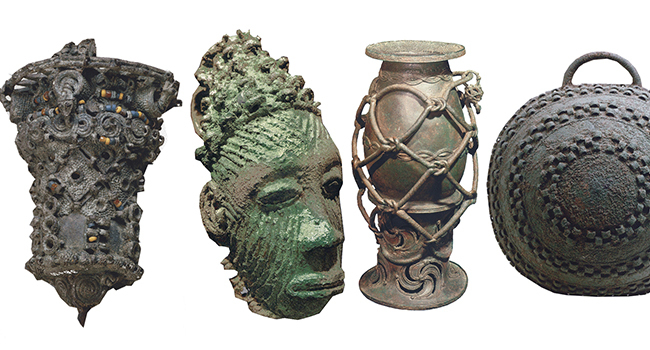The Igbo Ukwu Civilization: An In-Depth Analysis
Introduction
The Igbo Ukwu civilization, located in southeastern Nigeria, is one of the most significant archaeological discoveries in West African history. Uncovered in the mid-20th century, the artifacts and remains from this ancient civilization provide invaluable insights into the social, technological, and artistic achievements of the Igbo people. This detailed analysis explores the Igbo Ukwu civilization’s historical context, technological advancements, societal structure, and its impact on our understanding of pre-colonial Africa.
Historical Context
Discovery and Excavation
The Igbo Ukwu site was discovered in 1939 by a local farmer named Michael Echeruo, who stumbled upon a collection of metal artifacts while digging. This initial discovery led to formal archaeological excavations starting in the early 1950s, directed by British archaeologist Thurstan Shaw. The site comprises several burial complexes, including the major ones at Igbo Ukwu, which were found to date from the 9th to the 15th centuries AD based on radiocarbon dating and stratigraphic evidence.
Geographical and Cultural Setting
Igbo Ukwu is situated in southeastern Nigeria, within the modern-day Anambra State. The region is characterized by a rich history of cultural and economic exchanges with other parts of West Africa. The Igbo Ukwu civilization was part of a broader network of trade and cultural interactions across the continent, connecting it to the trans-Saharan trade routes and other West African societies.
Artifacts and Technological Achievements
Bronze Artifacts
One of the most remarkable aspects of the Igbo Ukwu civilization is its advanced bronze craftsmanship. The excavation unearthed a series of intricately crafted bronze artifacts, including ceremonial items, sculptures, and personal ornaments. These artifacts include:
- Bronze Ritual Objects: These items include elaborate bronze vessels, which were used in ceremonial contexts. The craftsmanship of these vessels demonstrates a high level of artistic and technological sophistication.
- Bronze Masks and Figures: The site revealed bronze masks and figures, which are believed to have been used in religious and ritualistic practices. These artifacts showcase detailed workmanship and suggest complex religious beliefs and practices.
Metalworking Techniques
The metalworking techniques of the Igbo Ukwu civilization are particularly noteworthy. The civilization utilized the lost-wax method for casting bronze, a technique that involves creating a wax model of the object, encasing it in clay, and then melting the wax to leave a mold for molten metal. This method allowed for the production of highly detailed and durable bronze objects.
- Iron Smelting: Evidence from the site indicates that the Igbo Ukwu people were skilled in iron smelting. The presence of iron artifacts and slag suggests that ironworking was a significant aspect of their technological achievements.
Societal Structure and Organization
Political and Social Organization
The burial sites at Igbo Ukwu provide significant insights into the social and political organization of the civilization. The elaborate nature of the graves and the high-status artifacts found within them indicate a well-defined social hierarchy. Key observations include:
- Elaborate Burial Practices: The presence of elaborate graves, including large pits and the inclusion of numerous artifacts, suggests that the Igbo Ukwu civilization had a complex and stratified society. High-status individuals were buried with a wealth of objects, indicating their elevated social status.
- Political Organization: The sophistication of the artifacts and burial practices points to a structured political organization. The presence of high-status burials suggests a centralized authority or ruling class that played a significant role in governance and societal organization.
Cultural and Religious Practices
The artifacts and burial practices at Igbo Ukwu offer valuable insights into the cultural and religious life of the civilization. Key aspects include:
- Religious Symbolism: Many of the artifacts found at Igbo Ukwu are believed to have held religious or symbolic significance. The intricate designs and motifs on the bronze objects suggest that religion and spirituality were central to Igbo Ukwu society.
- Ancestor Worship: The elaborate nature of the burial practices suggests a strong tradition of ancestor worship. The inclusion of numerous artifacts and ceremonial objects in the graves indicates that the Igbo Ukwu people placed significant importance on the afterlife and the role of ancestors in their spiritual beliefs.

Impact on Understanding Pre-Colonial Africa
Redefining African History
The discoveries at Igbo Ukwu have had a profound impact on our understanding of pre-colonial African history. Prior to these findings, African civilizations were often depicted as primitive or unsophisticated. The advanced technological and artistic achievements of the Igbo Ukwu civilization challenge these misconceptions and highlight the complexity and sophistication of African societies.
- Historical Significance: The Igbo Ukwu artifacts provide evidence of advanced metallurgical techniques and complex social structures in pre-colonial Africa. These discoveries contribute to a more nuanced understanding of African history and highlight the continent’s rich cultural heritage.
Influence on Modern Scholarship
The findings at Igbo Ukwu have influenced modern archaeological and historical scholarship, prompting a reevaluation of the development of complex societies in Africa. The recognition of advanced civilizations in Africa has led to a broader and more accurate understanding of the continent’s historical and cultural evolution.
- Scholarly Impact: The Igbo Ukwu civilization has become a key case study in the study of pre-colonial African societies. Researchers and historians now acknowledge the complexity and sophistication of African civilizations, leading to a more inclusive and accurate historical narrative.
Conclusion
The Igbo Ukwu civilization stands as a remarkable testament to the advanced technological and artistic achievements of ancient West Africa. Its sophisticated bronze artifacts, intricate metalwork, and organized societal structure provide valuable insights into the cultural and economic life of the Igbo people long before European contact. The discoveries at Igbo Ukwu not only enhance our understanding of pre-colonial African history but also challenge conventional narratives about the development of complex societies in Africa. By recognizing the significance of Igbo Ukwu, we gain a deeper appreciation for the rich and diverse heritage that has shaped Nigeria’s cultural and historical landscape.








